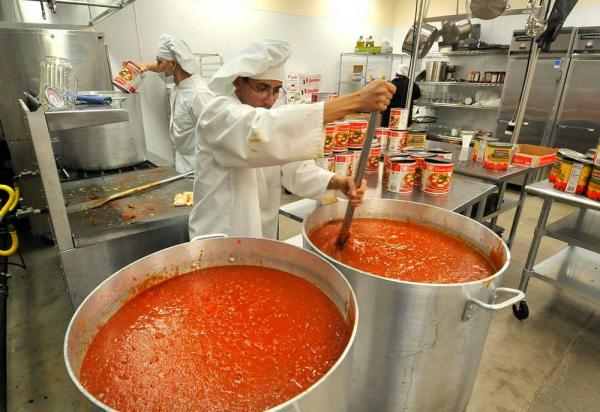I guess I’m a foodie. Or a food nerd, or whatever Slate and The Atlantic call people who are into food. I dunno, I’m not into labels. I do about half of our grocery shopping and cook about half of our meals. I look to a few celebrity chef’s cook books/websites for recipe inspiration and share soup and pancake recipes with Doug .
.
A lot of what got me into this can be blamed on the Food Network, Top Chef and the Internet. So can my love for pork belly.
The rise of food-related entertainment and the coolness associated with trying coffee made from beans that have been crapped out of a cat have resulted in more people getting into the food business. Niche bakeries, bagged salad makers and tempeh processors (run by foodies, or for foodies) continue to pop up as entrepreneurs are finding retailers who want to market local, specialized products.
Small food entrepreneurs are among the most passionate folks I’ve encountered – especially when it comes to creating community support for their products and sharing what they’ve learned with peers. That’s one of the reasons that shared-use or community kitchens are on the rise.
Shared-use kitchens are places where a bunch of fledgling food businesses can get together, learn from each other, use common equipment and space and take advantage of marketing together. There are around 30 of these sites in North Carolina alone – and likely hundreds across the U.S. supporting thousands of food businesses.
From Susan M. Novick of the New York Times,
At A Taste of Long Island, which opened in July, Courtney Thompson, 28, of Glen Cove, and her father, Jim Thompson, 59, of Massapequa Park, provide both an 800-square-foot commercial kitchen space for use by budding food entrepreneurs and a 400-square-foot retail specialty food shop in which they may sell their products. (And most do.) Around 20 clients are working in their kitchen making products that range from pasta sauce to vegan energy bars.
At the site on Main Street in Farmingdale, the Thompsons offer private-use kitchen rentals 24 hours a day, seven days a week in four-hour shifts that cost $110 each. In addition, Ms. Thompson and her father offer private business consultations for $100 an hour. Mr. Thompson previously owned a chain of video stores and a mobile book-fair business; Ms. Thompson has a bachelor’s degree in advertising and public relations from the New York Institute of Technology and a master’s degree in career and technical education fromSUNY-Oswego, where she performed most course work online, she said. “We show people the most cost-effective way to get their food business set up,” she said (but how do they help the businesses evaluate and manage food safety risks? Who does that technical work? – ben).
The year-round retail market features Long Island-made, preservative-free foods that include pickles, ravioli and baked goods, as well as fresh produce from local farms and greenhouses. The company’s commercial kitchen clients provide about a third of the products featured in the market.
In 2012, an outbreak of Salmonella Paratyphi B linked to Smiling Hara Tempeh of Asheville, NC demonstrated that illnesses associated with a member/client business, or the introduction of contamination can impact all who use a shared-use facility. Smiling Hara’s issue was with a supplier and a process that wasn’t validated to reduce pathogens but the outcome was devastating – 60+ illnesses, over 10 hospitalizations.And the shared-use facility, Blue Ridge Food Ventures, was shut for a few weeks for investigation, clean-up and sanitation. That meant that the other clients couldn’t make their products. Big bucks for everyone involved.
These facilities are a great idea for fostering business but food safety should be a focus into the peer-support network, a lot of it comes down to what the facility’s operator knows about risks, how to manage them.
